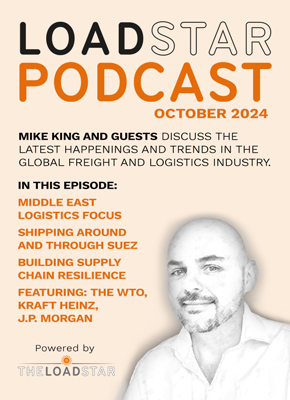
The European Commission has decided that FedEx’s proposed acquisition of TNT Express raises no competition concerns.
EC regulators undertook a wide-ranging investigation after the $4.9bn deal was announced in April, and caused jitters by warning that the merged company would face “insufficient competitive constraints” in several European markets.
However, FedEx received assurances from the EC in October that no “statement of objections” would be issued in Europe. In November, the company secured US antitrust approval for the acquisition.
TNT shareholders also gave their approval, spooked by a fall in third-quarter operating profits which the company blamed on economic volatility in China, Brazil and Australia.
The announcement that the EC will not demand concessions such as asset sales was greeted with relief by David Binks, regional president Europe for FedEx Express. “We are extremely pleased to receive the Commission’s unconditional approval. We believe the combination of TNT Express and FedEx will provide significant value to the employees, customers and shareholders of both companies,” he said.
Memories of European regulators quashing a proposed acquisition of TNT by UPS in January 2013 fuelled fears of a new rejection. Analysts said FedEx would have found it difficult to sell assets in an overnight European parcel delivery market containing just two other large-scale competitors, UPS and DHL.
This was the problem that faced UPS three years ago. The company revised its offer three times, even offering to create a new pan-European competitor, but failed to convince regulators that the plan was credible.
The essential difference now is that FedEx, which pulled out of Europe in the 1990s after suffering billion-dollar losses, has a smaller footprint on the continent than UPS and overlaps less with TNT’s existing business.
The merger will leave the combined FedEx-TNT entity with around 22% of Europe’s international express market, still slightly behind UPS’s 25%.
Market leader DHL has an estimated share of 41%. The next largest players – DPD, a subsidiary of France’s La Poste, and General Logistics Systems, owned by the UK’s Royal Mail – trail far in the wake of the integrators.
FedEx will exceed UPS’s market share in some European countries, according to John Haber, founder and CEO of Atlanta-based supply chain optimisation consultancy Spend Management Experts.
Europe’s long-running economic woes have hurt TNT, and it has failed to match its rivals’ success in building global networks, Mr Haber said. The acquisition will see FedEx integrate TNT’s European road platform and its Liege air hub into its own North American and Asia-Pacific networks.
But, while a pan-European road network will benefit FedEx in the fast-growing international e-commerce sector, Mr Haber warned of a long integration process.
“UPS, DHL and others will take advantage of the situation and launch campaigns to steer customers away from FedEx and TNT Express, not only in Europe but likely elsewhere, including the US,” he said.
Following Europe’s thumbs-up, FedEx and TNT said they would “continue to work constructively with the regulatory authorities to obtain clearance of the transaction in the remaining jurisdictions, including Brazil and China”.
The companies expect to finalise the deal by mid-year.



